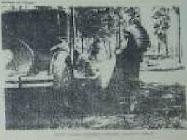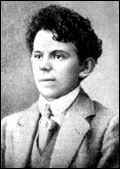Why poetry-making cannot be taught.
Because the fulcrum of art is imagination. "Imagination" is a name for the synthetic-inventive capability of the artist - the mind in concert with the eye, the hand, the feet, the heart. And because this fulcrum pivots on a desire to represent reality holistically (mimesis, imitation, mimicry). And because this desire to replicate or re-present reality in a new key, in a new medium, is incapable of fulfillment - the medium can never grasp the changing totality.
So what the artist does is surrender to what used to be called the "Muse" - stepping blindly into a trance-like state of creative glossolalia - in order to surrender to reality (since this is the only way to even approach mimesis).
Of course it is possible to teach and learn some of the skills which are necessary preliminaries of this creative furor (these preliminaries used to be called "versifying"). But the furor itself - what used to be called "inspiration" - can't be taught or learned in school. It can only be suffered. No one wants to undergo this, who hasn't already had a premonition about it long before.
The concept of "holistic representation" - the sense of immediacy, actuality and truth-to-life, which is communicated sometimes by the faintest and most abstract artistic means - and is the most difficult thing to achieve, and is the measure of an artwork's integrity (wholeness mirroring wholeness) - should perhaps be the real benchmark of aesthetic judgement (that of both critics and artists).
4.01.2007
Labels:
poetics4,
wholeness2
Subscribe to:
Post Comments (Atom)



No comments:
Post a Comment